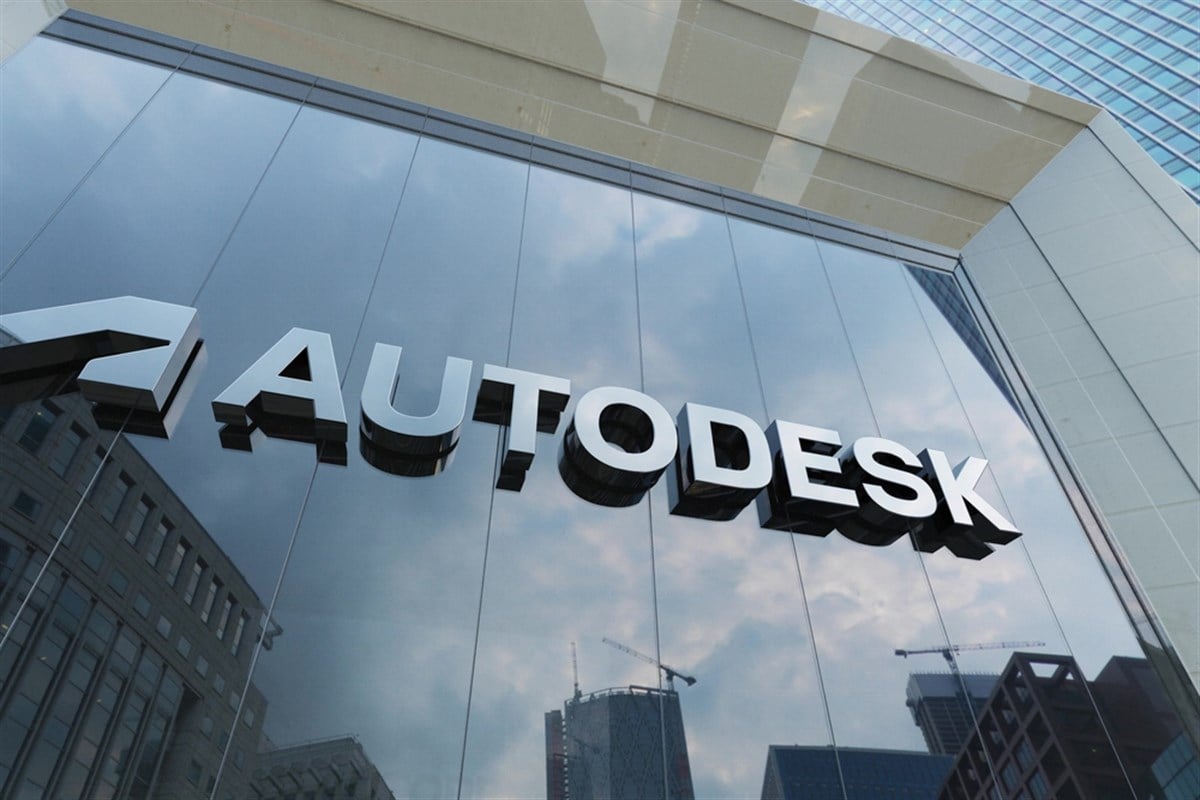
After reporting the year's first quarter results, Autodesk Inc. shares (NASDAQ: ADSK) are trading lower by over 3% to end the day. However, the company's financial results are far from those that would warrant such price action, and Wall Street analysts have noticed this fact.
Outside of the post-earnings reaction in the stock price, shares of Autodesk are trading at a compressed 76% of their 52-week high prices, opening the way for a potential discount play to be considered by investors today. With the world of technology stocks claiming the lion’s share of market attention, it seems inevitable that Autodesk may join the party soon enough.
While not as popular as other peers in the space, stocks like Nvidia Co. (NASDAQ: NVDA) and even Dell Technologies Inc. (NYSE: DELL), Autodesk still merits some of the excitement – and capital – that the rest of the artificial intelligence group is getting today. Here are some reasons behind Autodesk’s potential return to recent highs.
Autodesk's Financials Lay the Foundation for a Stock Rally
With an over 15% return on invested capital (ROIC) rate, Autodesk’s financials lay the foundation for what could become the easy choice in today’s stock-picking endeavors.
Within the company’s quarterly press release, investors will find that revenues increased over 12% in the past 12 months, which is far above the minimum requirements for a potentially good investment in today’s lackluster economy, as judged by the lower revised GDP growth rate of only 1.3% in the past quarter.
Apart from double-digit revenue growth, the company’s operating margin grew to 35%, or 3% higher than the previous year. Of course, keeping more money from each dollar in sales allows management to reinvest more capital efficiently and deliver these types of ROIC rates for investors to enjoy.
More importantly, there is an excellent reason why markets are willing to pay a price-to-book (P/B) ratio of 23.8x for Autodesk stock, which is 260% over the computer industry’s average 6.6x P/B valuation.
One of these reasons may be the subscription revenues, which grew by 11% to reach $1.3 billion. Because subscription revenue makes for more steady and predictable cash flows, markets could value it over other stocks that aren’t that stable in today’s market.
More than that, revenue retention rates at Autodesk remained at 100%, meaning that no customer dared to look elsewhere to replace the service and products received by the company. As these are all factors that Wall Street likes, it would be wise for investors to check what analysts are thinking about Autodesk stock.
Wall Street's Perspective on the Future of Autodesk Stock
According to the Royal Bank of Canada, the stock could go as high as $320 a share, a valuation that was set—and has not changed—since April 2024. To prove these analysts right, the stock would need to rally by as much as 51.3% from its current level.
To back these valuations into reality, Wall Street is now projecting up to 17.9% earnings per share (EPS) growth for the stock this year. Compared to peers like Adobe Inc. (NASDAQ: ADBE), a 12.8% EPS growth projection falls behind Autodesk, explaining why that stock’s P/B valuation is only 12.9x compared to Autodesk’s 23.8x.
With one last check, investors can take so-called ‘smart money’ as an indicator of future interest. The Vanguard Group, Autodesk’s largest shareholder, decided to boost its stake in the stock by up to 1.9% in the past quarter, bringing its net investment to $5 billion.
Considering that the computer software industry now trades at an average of 88.7% of its 52-week high, and Autodesk at only 76%, it comes as a surprise for investors to see Autodesk outperform the Financial Select SPDR Fund (NYSEARCA: XLF) by over 22% in the past 12 months.
With over $1.1 billion in billings, Autodesk is poised to continue delivering impressive financials in the future, another reason the market is bidding the stock higher and why it is willing to pay such a rich premium over its peers.
Autodesk's Upside Potential Linked to Rising Home Listings
As a final catalyst for investors to consider, rising U.S. home listings and heating activity in the real estate sector may increase demand for Autodesk’s 3D rendering capabilities.
Utilizing artificial intelligence to aid builders and architects in their need to design new construction, whether it is commercial or residential.
Backed by solid quarterly financial results, high valuation cases from analysts, and EPS growth, it looks like the Vanguard Group may have made the right choice in boosting its Autodesk positions.
